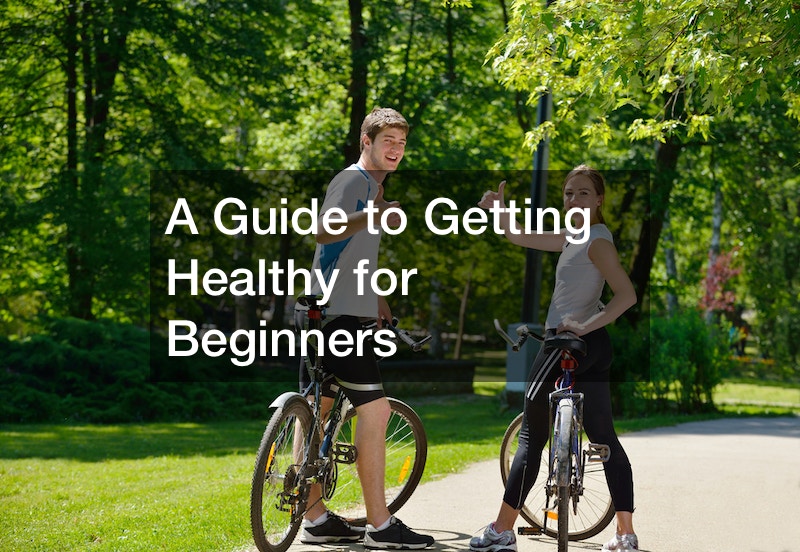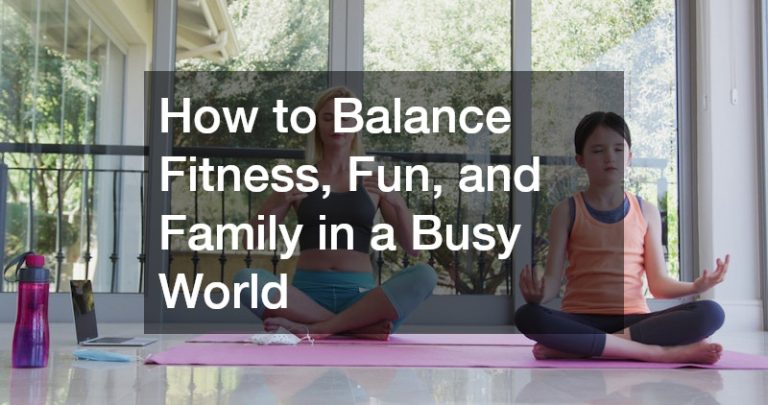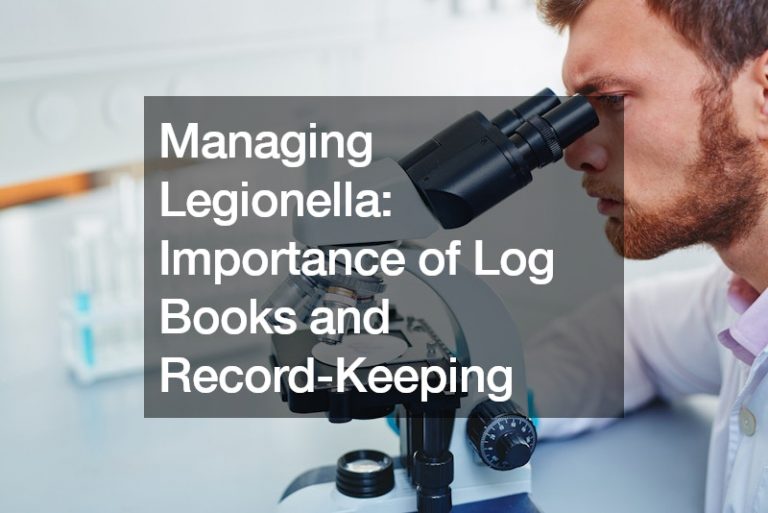

Congrats! You’ve committed to working on your physical health. You’ve had a ‘click’ inside and are ready to start forming better habits. But how do you get started?
Changing a habit can feel like an almost impossible undertaking. In truth, many Americans have bad eating or nutrition habits, which impact our safety, health, and general well-being.
In 2017, the prevalence of obesity was 39.8% among those aged 20 to 39. The number was higher for ages between 40 and 59 at 44.3%, and 41.5% for people above 60, according to the Centers for Disease Control and Prevention.
According to the World Health Organization, people can avoid at least 80% of all heart disease, stroke, Type 2 diabetes, and up to 40% of cancer if they improve their diets, increase their physical activity levels, and give up smoking. Everyone should make an effort to eat healthily, exercise regularly, and engage in healthier lifestyles overall. Here is a guide to getting healthy for beginners.
1. Get a Checkup Every Year
People used only to visit their medical doctor when they were seriously ill or near death a generation ago. Preventative healthcare is becoming more and more widespread as people get more knowledge and control over their health. Oftentimes, annual checkups can be covered or partially covered by your health insurance such as Medicare, Medicaid, and Jericho Share insurance. People are proactively looking for medical guidance on leading healthy lifestyles. They hope to reduce their risk of developing various ailments or diseases by keeping a healthy diet, weight, and physical exercise.
To assist patients in keeping on top of their health, doctors also urge patients to have routine checkups. They emphasize the value of prevention to lower the number of individuals who need to undergo surgery or medical treatment.
Getting a checkup yearly is one way of getting healthy for beginners. Regular check-ups can assist in identifying any health problems before they become serious. The visits to the doctor allow them to catch diseases or disorders early. Early detection will enable you to get the proper treatment promptly, avoiding consequences. You can live a longer, healthier life by receiving the appropriate health services, exams, and treatment from your primary care physician.
2. Schedule Regular Dental Appointments
You’ve probably heard this often, but why are routine dental checkups crucial? The American Dental Association advises scheduling a dental checkup after six months. Make an appointment with your dentist regularly rather than only when anything is wrong. Scheduling a regular dental appointment is another way of getting healthy for beginners. Besides the fact that prevention is always better than cure, there are several other reasons to make frequent visits to your dentist office:
Check for Oral Cancer
One of the most important procedures your dentist performs with every checkup is this one. The dentist will also look for head, neck, and oral cancer. As they do this, they will look for bumps on your head and neck. They will also search for any red or white lip patches. These examinations might turn out nothing unusual, but they might still save your life.
Dental Hygienists
We regularly overlook our oral health, even though the services and recommendations of dental hygienists can be helpful. Dental hygienists’ main priorities are gum disease treatment and ‘preventive’ dental care. They will help you maintain the health of your teeth and gums by instructing you on the right at-home methods. This includes brushing and washing your teeth to remove plaque and tartar, which encourages gum disease and tooth damage.
Consultations Regarding Teeth Bleaching
Teeth whitening has gained popularity in recent years. However, many misunderstandings about what is safe and legality concerns need to be clarified. Your local dentist is the best person to provide you with advice regarding your alternatives for tooth whitening. They are in a good position since, in addition to being experts in teeth whitening, they are the only location where it is permissible to have your teeth professionally whitened.
Avoiding Severe Issues of Catching Them Early
You can see how your teeth look in a mirror, but there may be a lot going on beneath your gums that you are unaware of. Dentists can prevent issues as well as solve them. The dentist may be able to detect gum disease and tooth decay in its early stages. Taking charge of your oral health is critical by visiting the dentist regularly to detect any problems early. Your dentist should be your first stop when it comes to your teeth and mouth because nobody is better equipped to assist you in maintaining good oral health than they are.
3. Get Your Eyes Checked
A comprehensive eye exam includes a set of tests to assess your eyesight and look for eye problems. Your eye doctor may ask you to look through various lenses, use various tools, and shine strong lights in your eyes. During an eye exam, several aspects of your vision or eye health are assessed using various tests. So why is it done, you ask?
An optometrist helps uncover eye issues at their earliest stage — when they’re most manageable. An eye exam allows your eye care specialist to determine the best way to correct or adapt to changes in your vision and provide you with information on caring for your eyes. And an eye checkup may reveal information about your general health.
Regular eye exams are crucial for the following reasons:
- Having your vision corrected can enhance your daily life.
- They will aid in detecting disorders that could result in vision loss, such as age-related macular degeneration, glaucoma, and cataracts.
- You can avoid a risk factor for falls.
4. Take Care of Your Back
Most of us only think about our spines when we have those annoying aches and pains. It is common for people to think first of diet and exercise when considering what to do to stay healthy. Of course, they are crucial, but your spine is a vital foundation, and taking care of it is a great way of getting healthy for beginners. You should constantly take an active role in maintaining and enhancing your back health because a strong spine is essential. We frequently don’t pay our backs the attention they deserve until discomfort occurs. That’s where we make a mistake.
Here are the top reasons why you should treat your spine with the care it requires daily:
You Should Take Care of Your Spine
The more you take care of your spine, the less likely it is to give out on you during a stressful or physically demanding situation. A weak spine can be overwhelmed by more stress, leading to long-term health issues with your nervous system.
No Pain Doesn’t Imply No Issues
The presence or absence of back pain does not always accurately reflect the condition of your spine. Regular chiropractic treatment that checks posture, weight distribution, and palpation is a more efficient approach to maintaining the health of your spine because pain is frequently the final sign of a sick spine.
Your Spine Supports Your Entire Body
Your nervous system, which serves as the primary control center for your entire body, is protected by your spine. The performance of crucial organs and systems may be compromised if your spinal condition is not adequately controlled, resulting in further discomfort or health issues.
Your Spine Impacts Your Quality of Life
Maintaining a solid spine and nervous system is essential to enjoying an active, healthy life as you age. Contrary to popular belief, subluxations cause your spine and neural system to degenerate over time, not age itself. The same thing can happen to your spine if it is misaligned, just like car tires wear out unevenly. You can extend the life of your spine by leading a healthy lifestyle and receiving regular chiropractic care.
5. Do a Detox
The phrase ‘detox’ may conjure up images of complicated regimens; however, detoxification refers to biological processes that take place constantly to eliminate waste. This is another great way of getting healthy for beginners.
In the twenty-first century, most of the toxic exposures we experience today have only been present in the environment for 60 to 70 years. Over 86,000 environmental chemicals created by humans have been listed in the Environmental Protection Agency’s (EPA) database. Many of these compounds have little to no safety testing before they are licensed and disseminated.
However, the body eliminates environmental toxins that enter the body and toxins produced during normal bodily processes and cellular metabolism. For detoxification, the liver frequently receives a lot of attention for good reasons. The liver can convert waste materials and poisons into water-soluble molecules, which can subsequently be expelled from the body by the intestine, urine, breathing, or sweating.
The liver needs a lot of fuel from vitamins, minerals, amino acids (from protein), and antioxidants to efficiently do its detoxifying task (along with the hundreds of other jobs it must complete every day). Detoxification of the liver is supported by a strong foundation of nourishment from actual meals. This is one of the reasons why what you eat is essential for your health.
An effective detoxification therapy can put you on the road to health, energize you, and improve your mood. It’s crucial for avoiding infections and may make your immune system somewhat more effective. This is another way of getting healthy for beginners, which will significantly improve your health if you do it correctly.
6. Remove Health Hazards From Your Home
High radon levels, leaking water, structural problems, lead-based paint, and broken smoke alarms are some of the most prevalent threats in the house, according to the Centers for Disease Control and Prevention (CDC). This list excludes the danger of rodent or insect infestations and the possibility of mold in a dirty house.
Depending on who resides with you, your home may have particular safety needs. You must take special care if you live with children, older people, or those with mobility issues. Removing health hazards from your home is another great way of getting healthy for beginners.
You might be exposed to asbestos if your house was constructed between 1920 and 1978 because it was a standard building and insulation material at the time. While low levels of asbestos exposure are unlikely to be harmful, excessive levels can raise your risk of lung disease and cancer. It’s easy to conduct asbestos inspections, but you might require the help of professionals to carry out a mold inspection and the removal of asbestos.
7. Spend Time Outside
Do you ever experience a sense of happiness and refreshment after spending time in nature? It’s not a coincidence. Spending time outdoors has been linked to general well-being and good health. It’s another great way of getting healthy for beginners.
In reality, nature can find competing with the interior environment difficult. After all, she cannot provide WiFi, air conditioning, or flat-screen TVs. She could provide something even more significant: improved health, as evidenced by a boosted immune system, increased sleep, and decreased stress.
There are many ways to improve one’s physical and emotional well-being simply by enjoying some fresh air. Furthermore, such advantages don’t require prolonged exposure to the elements. Spending an hour in nature each week can significantly improve your health and well-being, according to a 2019 study, by Trusted Source that incorporated data from 19,806 participants.
Our psychological health benefits from being around trees, the sky, and birdsong, according to a 2018 study from King’s College London. It also doesn’t take long to enjoy the advantages of being outside. In 2020, Cornell University researchers discovered that even 10 minutes spent in a natural environment might make us happier and minimize the consequences of both physical and emotional stress.
Increasing amounts of research also point to the therapeutic benefits of gardening. According to a National Garden Scheme poll, more than half of respondents stated that visiting a garden increases their creativity, and 85% of respondents indicated it benefits their mental health.
In fact, spending time outside is so healthy for us that the long-standing Japanese practice of ‘forest bathing’ has recently gained popularity in the West. Known as shinrin yoku in Japan, this straightforward technique of remaining still and silent amid the trees, taking in the scenery, and taking deep breaths can help us de-stress in various situations.
Staying healthy is simpler than you would imagine. You can improve your health in a variety of ways with little effort. Incorporating even a handful of the above tips into your daily routine is one step into getting healthy for beginners.






